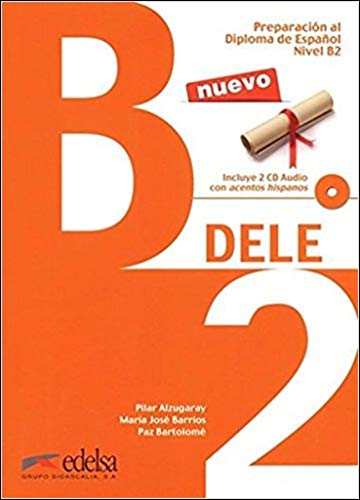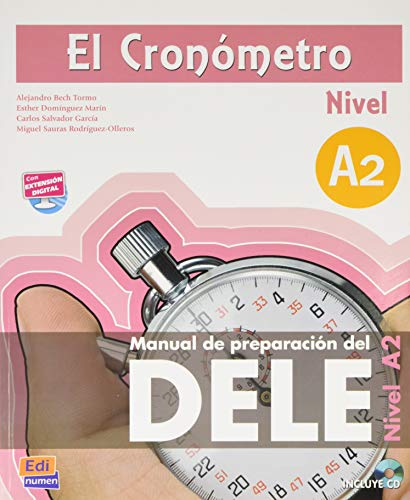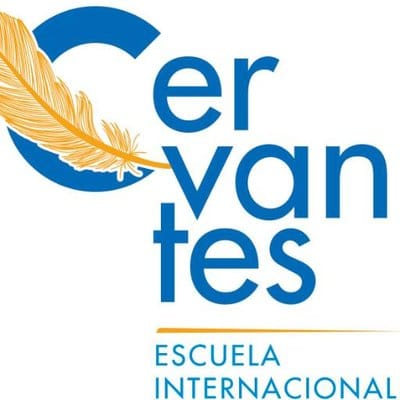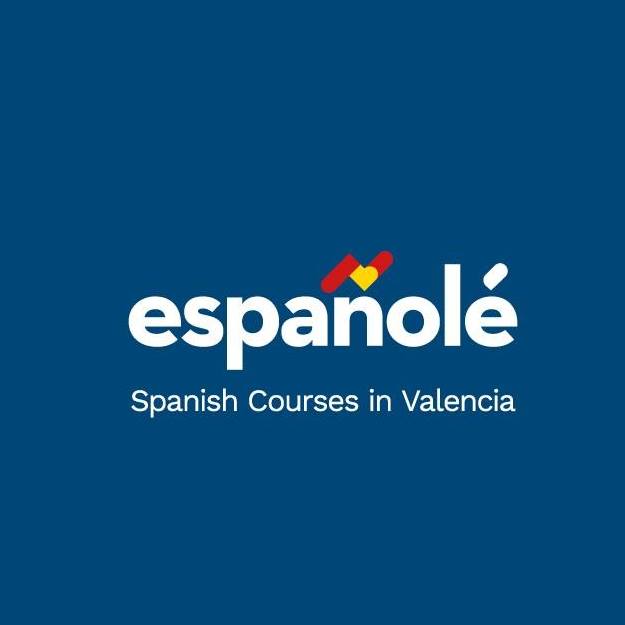
The 2024 DELE Exam Guide for Spanish Learners
The DELE exam is a certification that proves your proficiency level in Spanish on a range of six levels.
In this blog post, we’ll look at everything you need to know about the DELE exam—such as what it entails, study tips for exam prep, eight study resources and more.
Contents
- What Is the DELE Exam?
- What Are the 6 DELE Exam Levels?
- What to Expect When Taking the DELE Exam
- FAQs About the DELE Exam
- 8 Resources to Use to Study for the DELE Exam
- Where to Find Past DELE Exams
- And One More Thing…
Download: This blog post is available as a convenient and portable PDF that you can take anywhere. Click here to get a copy. (Download)
What Is the DELE Exam?
DELE stands for Diploma de Español como Lengua Extranjera (Diploma of Spanish as a Foreign Language).
The tests are designed by the Universidad de Salamanca (University of Salamanca) in Salamanca, Spain. Located west of Madrid, it also corrects and delivers the final results of the exam.
Instituto Cervantes (Cervantes Institute), located in Spain, plans the examination sessions. Your exam scores act as certification to prove that you’ve reached a certain degree of competency in the Spanish language.
Anyone can take any of the DELE exams, and registration is easy and can be done online if you’re taking the exam in Spain. When you pass a DELE exam, the certificate you receive never expires.
You can find out more about the DELE on the official website or on the Cervantes Institute website, as well as this guide from FU International Academy Tenerife.
What Are the 6 DELE Exam Levels?
The exams are separated into six levels:
| Result | Level | Usage Level |
|---|---|---|
| A1 | Lower Beginner | Breakthrough |
| A2 | Upper Beginner | Waystage |
| B1 | Lower Intermediate | Threshold |
| B2 | Upper Intermediate | Vantage |
| C1 | Lower Advanced | Effective Operational Proficiency |
| C2 | Advanced | Mastery |
Levels A1 and A2 show an ability to communicate on general topics. Family, work, shopping and a few other common themes are part of these levels.
Levels B1 and B2 deal with understanding texts and navigating situations that might occur when traveling. They test your writing skills on simple subjects. They also test your ability to express thoughts and opinions.
Levels C1 and C2 test your ability to understand intricate texts, fluency when communicating and your ability to write on complex subject matters.
The tests show proficiency in all facets of language learning—reading, writing, speaking and listening. The higher the level, the more challenging those exam questions will be.
In the past, reading comprehension material has been taken from Spain’s daily newspaper “El Mundo” (The World). So if you want to get a head start or just add on to your exam practice, check it out.
What to Expect When Taking the DELE Exam
How Long Is the DELE exam?
The DELE exam can take between two and a half and five hours approximately (including breaks), depending on the level.
For instance, the A1 exam includes four tests:
- Reading comprehension (45 minutes)
- Listening comprehension (25 minutes)
- Written expression and interaction (25 minutes)
- Oral expression and interaction (10 minutes + 10 minutes to prepare)
The C2 exam only includes three tests. However, they’re much longer:
- Use of language, reading and listening comprehension (105 minutes)
- Integrated skills: Listening and reading comprehension, and written expression and interaction (150 minutes)
- Integrated skills: Reading comprehension and oral expression and interaction (20 minutes + 30 minutes to prepare)
How Long Does It Take to Receive My DELE Exam Results?
After you finish your exam, you’ll have to wait around three months to get your results.
You’ll first be notified via email.
It will tell you if you passed. If so, you’ll be able to access your digital certificate, which can be used as proof of your Spanish knowledge while you wait for the actual diploma.
Later on, you’ll receive your diploma through postal mail. You can also go to the center where you took the exam and pick it up personally.
How Do I Pass the DELE Exam?
To pass the test, you’ll need to get an overall score of 60% out of a total of 100 possible points.
However, the DELE exam is prepared to make sure you’ve mastered all the language skills, so you need to get 60% on each test to actually pass it. For instance, if you get 100% in three tests but 55% in one, you won’t pass.
So you need to practice all four major language skills plus grammar and vocabulary at the appropriate level before taking it. The final grade will be either PASS or FAIL, according to the criteria I’ve just described.
If you fail your exam or don’t agree with your grade, you can ask for a revision. But bear in mind that your original score can be lowered if the person revising the exam finds any additional mistakes or thinks you deserve fewer points on a specific question.
Do DELE Scores Expire?
The greatest thing about the DELE scores is that they never expire.
You can try to pass the DELE exam for a different level if you so wish, but once you’ve passed a level, that score will always and forever be valid.
FAQs About the DELE Exam
Is the DELE Exam Difficult?
Answering this question depends on several factors, such as the exam level, how long you’ve been studying Spanish and how well-prepared you are.
But to give you a short answer first: No, I don’t think the DELE exam is difficult. However, it’s very, very, very demanding.
Depending on someone’s Spanish level, the same DELE exam can be easy for you but super hard for another person. If you look at the DELE curriculum, you might get stressed out.
There’s so much to cover it doesn’t seem to ever end. But that’s the whole thing, not your specific test. You can click on the different sections depending on your level and get to know exactly what you’re expected to know.
The DELE exam can be passed, but for that to happen, you need to work hard.
Is the DELE Exam Worth It?
There are many pros when it comes to taking the exam and getting your diploma. Here you have a few of them:
- You can use it to access schools and universities
- It’s a great asset to add to your CV/resumé
- It can land you the job of your dreams
- It’s officially recognized worldwide
- You can use it to apply for Spanish citizenship (from level A2 onwards)
- It never expires
What’s the Difference Between the DELE and SIELE?
I’ve been talking about the DELE, and it’s my goal with this post to set you up for a successful score. But did you know there’s another test Spanish learners can take known as the SIELE?
It’s not as common, but I feel it’s worth mentioning if we’re going to talk about the DELE exam in its entirety.
So what’s the difference? Both the DELE and the SIELE are official exams you can take to assess your knowledge of Spanish.
Even though they have some points in common—like the fact that they focus solely on Spanish or that they give you an official certification after you pass—there are a few key differences between them.
You can read in detail about all the differences and similarities between both exams on this site. In the meantime, here you have a list of the most important points:
- The DELE certification never expires, while the SIELE is valid for only five years
- You have to take all the DELE exams for a specific level (listening, reading, writing and speaking), while the SIELE allows you to get tested on language skills individually
- The DELE diploma is officially recognized worldwide, but the SIELE is only accepted by SICELE members
- You can only take the DELE exam on specific dates, while the SIELE can be done whenever you want
- The DELE is compulsorily done on paper, while the SIELE is done electronically in an examination center
Taking one exam or the other will mainly depend on your needs.
If you need a quick way of demonstrating your Spanish language skills, the SIELE could be a better option because it can be done anytime during the whole year.
The same happens if you only need a certificate stating your language level. The SIELE will give you a certificate even if you get zero points, and you’ll have a document that says your Spanish level is A1.
Another advantage the SIELE has over the DELE is that you can check your mastery of specific skills. If you only need to prove your speaking skills or your writing talent, you just have to take those parts of the exam.
On the other hand, if you need to demonstrate you have a deep knowledge of Spanish and have mastered every language skill, you’d have to take the DELE exam.
The DELE is much more demanding, and you’ll need more time to prepare for it, but the benefits are also bigger. And having a DELE diploma can certainly improve your CV/resumé.
At the end of the day, you decide which one is the right exam for you. Both are official, internationally recognized and accepted exams.
How Much Does the DELE Exam Cost?
One of the downsides of the DELE exam is its price. The exams for each level have to be paid separately, and normally the prices grow as the level goes up.
It’s also important to note that prices might vary depending on the country you’re in and the center where you’re planning on taking the exam. For reference, the price of the A1 exam in 2021 in Spain is 108 euro, while the C2 exam is 220 euro.
The good news is that you don’t have to pass all the previous levels to get a C2 diploma. You can take an exam for any level you want if you feel ready.
With my students, I first assess the Spanish level they have according to this level test (or this one, if they want an easier one). And then, we aim for one higher level while they prepare for the exam.
How to Know Which DELE Exam to Take
The exam level you want to take depends on your current and desired Spanish level. If you’re learning with a teacher, they should have enough information about your Spanish skills to give you an answer that fits you personally.
Generally speaking, I always advise my students to go for one level higher than the one they have when they start preparing for the exam.
Obviously, there are exceptions—like a person who starts learning Spanish from scratch and decides to wait till they reach the B1 level to take it. Or an advanced student who’s already reached the C2 level “in theory” but wants to make it official.
Whatever you decide, it’s crucial to choose a specific level before you start preparing for the exam because the curriculum for each level is very different. The last thing you want to do is waste your time on unnecessary topics or ignore anything important.
If you don’t have a Spanish teacher, you can also try taking a proficiency test or two, like the ones I linked to earlier.
Where to Take the DELE Exam
The DELE exam can be taken at an Instituto Cervantes or an examination center—and there are plenty out there. 1,000 places in 100 countries, to be exact.
To find one near you, you can use the Instituto Cervantes center search engine (in Spanish).
When Can You Take the DELE Exam
The DELE exams can only be taken on specific official dates, and all the centers around the world have their exams on the same days. It’s important to remember two things when deciding the date of your exam:
- Not all levels are offered on all dates
- You have to register for a specific date before the registration period ends
You can have a look at all the available dates for 2023 on this Instituto Cervantes webpage.
How to Sign Up for the DELE Exam
You can sign up for the DELE exam online (if you’re going to take the exam in Spain) or in person at the center where you’re planning to take it.
If you’re going to take the exam in Spain, you can start your registration process by creating a user account on the Instituto Cervantes website. You’ll be able to register for the exam through your account.
If you’re going to take the exam outside of Spain, you’ll have to go to the center you’ve selected and bring:
- Two copies of the application form
- Original and photocopy of a photo ID
- A document accrediting the payment of the registration fee (you’ll need to contact your center first to get further details on this)
8 Resources to Use to Study for the DELE Exam
Since most of the resources I listed below have coursework or materials for each level of the exam, they’re all suitable for anyone who’s preparing to take one. And if one doesn’t, I’ve left a note about it.
The materials covered are basically the same for each course. The exams are standardized, so the coursework is fairly standard, as well. It’s just a matter of choosing a resource or course that suits your scheduling and financial needs.
Choosing an in-home method of preparing is a flexible option and certainly less costly than attending structured classes in Spain. But whatever your time or budget, there’s a course that’ll work for you.
It’s also important to note that preparing specifically for the DELE will help you pass the test. But if you want to be confident in your Spanish conversation skills and fluency, don’t stop studying it holistically—such as through your favorite apps and websites.
That’s why I recommend you use more complete learning programs in addition to the DELE preparation materials I’m about to introduce to you. For example, FluentU has thousands of Spanish videos turned into bite-sized study sessions.
FluentU takes authentic videos—like music videos, movie trailers, news and inspiring talks—and turns them into personalized language learning lessons.
You can try FluentU for free for 2 weeks. Check out the website or download the iOS app or Android app.
P.S. Click here to take advantage of our current sale! (Expires at the end of this month.)

Using the resources below and your favorite general Spanish learning tool is the recipe for acing the DELE.
1. “Preparación DELE”
“Preparación DELE” (DELE Preparation) is a series that covers the six exam levels. There are two books for each level.
The linked book and CD are targeted toward Exam B2—the upper-intermediate level—but its format is consistent with that of the other books in the series.
If you plan to take higher-level exams, you can get a taste of how this prep material works with this set. And you’ll be refreshing your memory of intermediate material, as well!
The books provide several practice exams, guidelines for the exams and tips for taking them.
As some reviewers note, you can use this book even if you aren’t planning to take the test as a way to track and test your learning progress.
2. “El cronómetro A2: Manual de Preparación del DELE”
“El cronómetro A2: Manual de Preparación del DELE” (The Stopwatch A2: Manual for DELE Preparation) is strictly exam preparation, meaning it covers only question types that you’re likely to find on the exam.
The manual is a series of exams that are intended to prepare you to take the DELE. There’s also an appendix section with advice on how to best study.
The book linked above is intended for level A2, but there are books for the other levels as well.
The book’s practice exams provide examples of just what to expect on the actual exams. And perhaps the best part is that there are answer keys, so it’s possible to check on—and work on—potential problem areas.
3. Global Exam
Global Exam provides online training for all six levels of the DELE exam.
The website offers extensive resources, including training modules, thousands of practice questions, study sheets and strategies for doing well on the tests.
They’re so confident in their ability to help you pass the exams that they guarantee an 88% success rate after training with them for a month.
Additionally, there’s a free trial option to help you decide whether this is the best course for you or not.
4. Web Spanish
This DELE preparation website covers only levels B1, B2, C1 and C2. The courses are taught through video lessons and you can get an introductory lesson for just $4.99.
A bonus? Web Spanish’s five-hour course called “Discovering the DELE” helps you decide which level to prepare for.
It also helps you determine your own strengths and weaknesses so that you can tailor your exam preparation to address any points that might need strengthening.
Video courses are taught by experienced teachers who’ll help you hone in on weak areas and strengthen them through instruction. As for pricing, you can pay in bulk for a certain number of hours, choosing the time package that works for you.
5. Instituto Cervantes
Instituto Cervantes is the same institution that plans the examination courses.
The DELE preparation courses they offer are intense, to say the least. There are six individual ones, one for every exam level.
The courses take place in Malaga, Spain and consist of 20 lessons each.
The maximum number of students per course is five, so there are lots of opportunities for individualized attention. And anyone 14 or older can enroll.
If going to Spain isn’t an option for you, you can choose to take lessons via Skype.
6. Españolé
Españolé is a Spanish school located in Valencia, Spain that focuses on culture learning as well as language learning.
Their DELE exam preparation courses cover all six levels. They start four weeks before the exam and last 1-4 weeks. They consist of 20 prep classes in total.
Similar to the previous course, the number of students in a class is limited. With Españolé, classes enroll a maximum of 10 students but actually only contain six on average!
7. Taronja School
The Taronja School is an official DELE exam center that offers intensive exam preparation courses in Valencia, Spain.
To prepare for the DELE exam with them, you’ll need to choose the “Intensive Course” and combine it with private lessons focused on DELE prep.
The intensive Spanish course consists of 20 lessons per week (4 lessons daily), plus five weekly sociocultural activities.
For private lessons, you can choose singular, pay-as-you-go lessons starting at 39 euros. Or choose a five-pack or ten-pack of lessons. Since Taronja is an official DELE testing center, you can take the DELE exam right there in the school once you complete your course.
8. FU International Academy Tenerife
This Spanish school in Tenerife offers DELE exam prep similar to Taronja. You take their Intensive 20 Course, plus 5-10 private lessons. They offer exam prep for all levels except A1, and they boast a 90% pass rate.
Their intensive courses have 20 lessons per week and start every Monday. You choose the duration of the course, which can be from one week to 48 weeks. The school also assesses your proficiency with a placement test before advising on the exam you should take.
Coursework helps you become familiar with the way the exams are structured, improves conversational fluency and helps you master the vocabulary for your exam level.
Like Taronja, this school also administers the DELE exams, so you can prepare and get certified all in one place.
Where to Find Past DELE Exams
These eight resources include a lot of past exams and exam models for you to practice for hundreds of hours. But if you want more, you can get additional DELE fun on the official Instituto Cervantes website.
At the bottom of the page, just click the link “Modelo de Examen.” There are also a couple more old exams in the section.
Additionally, if you do a quick Google search, you’ll find millions of results for “past DELE exams,” which are usually the PDF files of the exams from the official site.
My personal recommendation is that you buy any of the books referred to in this post or choose another one from the official list of publications.
Good luck with the exam!
Download: This blog post is available as a convenient and portable PDF that you can take anywhere. Click here to get a copy. (Download)
And One More Thing…
If you've made it this far that means you probably enjoy learning Spanish with engaging material and will then love FluentU.
Other sites use scripted content. FluentU uses a natural approach that helps you ease into the Spanish language and culture over time. You’ll learn Spanish as it’s actually spoken by real people.
FluentU has a wide variety of videos, as you can see here:

FluentU brings native videos within reach with interactive transcripts. You can tap on any word to look it up instantly. Every definition has examples that have been written to help you understand how the word is used. If you see an interesting word you don’t know, you can add it to a vocab list.

Review a complete interactive transcript under the Dialogue tab, and find words and phrases listed under Vocab.

Learn all the vocabulary in any video with FluentU’s robust learning engine. Swipe left or right to see more examples of the word you’re on.

The best part is that FluentU keeps track of the vocabulary that you’re learning, and gives you extra practice with difficult words. It'll even remind you when it’s time to review what you’ve learned. Every learner has a truly personalized experience, even if they’re learning with the same video.
Start using the FluentU website on your computer or tablet or, better yet, download the FluentU app from the iTunes or Google Play store. Click here to take advantage of our current sale! (Expires at the end of this month.)
















